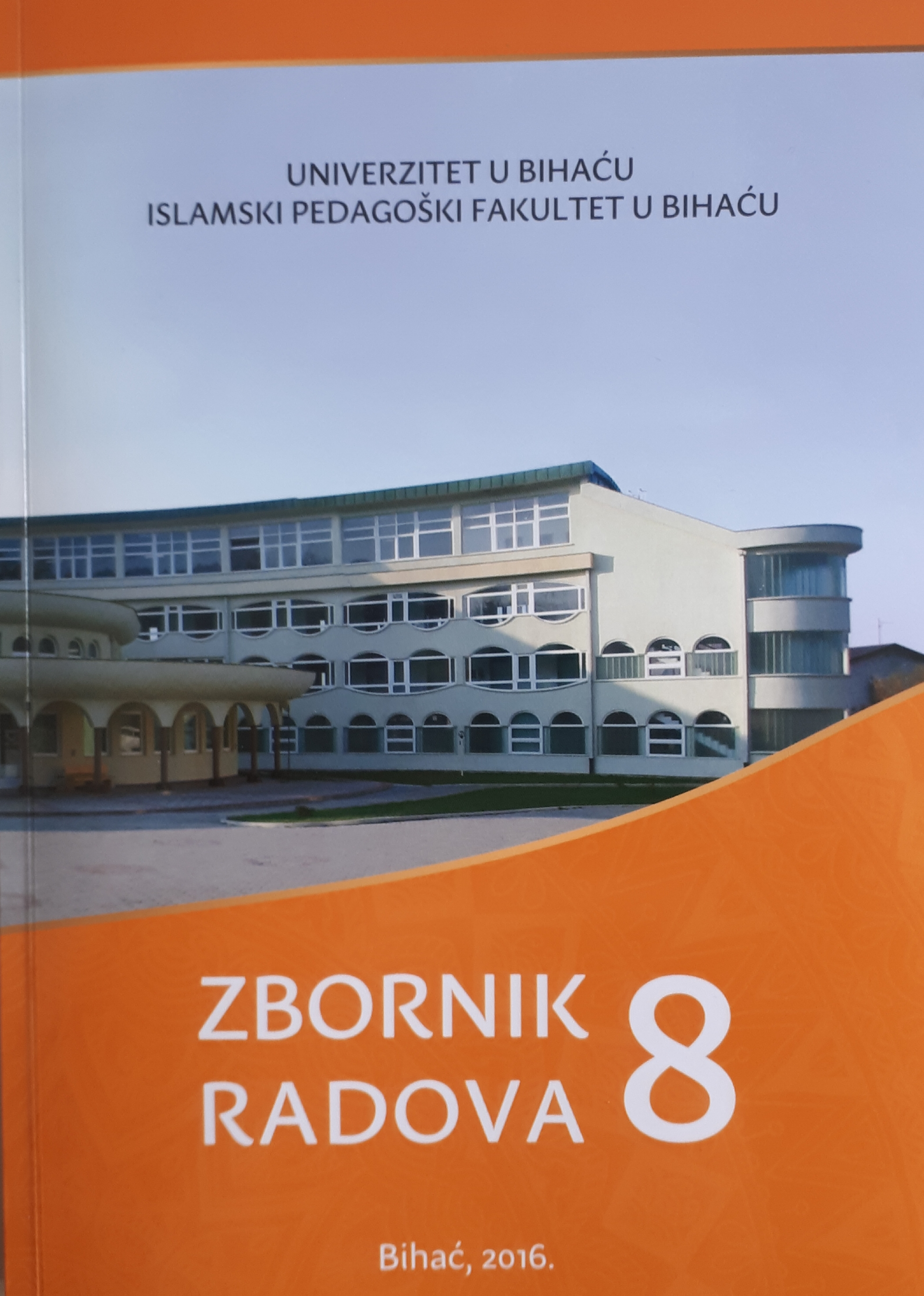PERSONALISTIČKI SKLOP INTELIGENCIJE I USPJEŠNO UČENJE
PERSONALISTIC COMPONENTS OF INTELIGENCE AND SUCCESSFUL LEARNING
Author(s): Osman RamićSubject(s): Philosophy, Education, Social Philosophy, Special Branches of Philosophy, Philosophy of Mind, Educational Psychology
Published by: ISLAMSKI PEDAGOŠKI FAKULTET U BIHAĆU
Keywords: personal components; intelligence; learning; extraversion; introversion; neurosis; social maturity; emotional maturity; factors; G-factor; intrapersonal sensitivity; interpersonal sensitivity; artific
Summary/Abstract: Since learning is a central concept when it comes to education, it is necessary to devote full attention to it. It is the duty of schools to train pupils for independent learning and to develop competences that enable them to be active participants in the teaching process. By taking into account individual abilities of each pupil, teachers will create a socio-emotional climate in the classroom that will ensure equal treatment and successful mastering of educational material by all pupils, according to their abilities and skills. The responsibility of teachers is big, hard, but also noble and beautiful. Is there anything more beautiful than relationship between teachers and students? Current issue in today's school is the inclusion of children with disabilities into regular classes. This is a very important moment in the system of education because it is related to people who have special needs in terms of disability and inevitably require special treatment in order to achieve results in accordance with their capabilities and abilities. Therefore, it is very important to know the personal components of intelligence of each student. This knowledge directs us how to successfully work, how to harmonize our requirements, and which methods and procedures to apply in order to achieve optimal results with pupils. Successful learning will be achieved by those educators who manifest love interest and expertise in the work they do. However, this is only one side of a successful educational work. The participants in the teaching process are (or at least should be) pupils whose success in learning depends on their efforts. Their interest, motivation to learn with the proper use of their own resources will ensure that learning is successful.
Journal: ZBORNIK ISLAMSKOG PEDAGOŠKOG FAKULTETA U BIHAĆU
- Issue Year: 2016
- Issue No: 8
- Page Range: 187-213
- Page Count: 27
- Language: Bosnian

